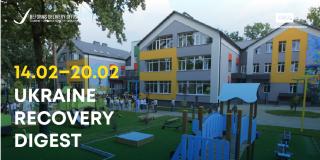Is life without plastic possible? Today you will hardly find an office without plastic water cups. Having them is convenient and customer friendly, but not from plastic cup alone can people drink water. Plastic bags in supermarkets are also a simple, convenient and mostly free of charge option to pack your groceries.
But this "convenience" can soon destroy our planet. It's now too late to only talk about the problem — action is required.
Living in a world of plastic
The scale of the problem is striking. It was found that although the large-scale production of plastics dates back to about 1950s, 8.3 billion metric tonnes of plastic had been produced over the period, creating 6.3 billion tonnes of waste with just 9% recycled.
According to the latest estimates of the European Commission, across the world plastics make up 85% of beach litter, which is catastrophic to the marine ecosystem, the environment and human health. The highest concentration of plastics found by American scientists in a sample of groundwater, which is one of the main sources of drinking water, was around 15 particles per litre.
Given that plastic production keeps increasing each year, the forecast is discouraging. The figure is expected to triple by 2050, when plastic production may account for 20% of global annual oil consumption. If current trends continue, there will soon be more plastics in our seas and oceans than fish. In addition, plastics emit greenhouse gases.
To ban or recycle?
Many countries have already embarked on the fight against plastic pollution. The UN found that globally 127 or 66% of the countries have now adopted some type of legislation to restrict the use of disposable plastic bags.
On 18 January 2019, EU Member States confirmed their provisional agreement to introduce restrictions on certain single-use plastic products. In 2021 European citizens will say goodbye to plastic cutlery, plastic plates and plastic straws among other products.
The EU is not alone in waging war against plastic waste. The year 2019 will mark the first phase of a blanket ban on single-use plastic items in Taiwan, and ten African countries have already banned plastic bags. Kenya went even further and brought in world’s toughest ban on plastic carrier bags, which means that anyone found selling or using them could face prison sentences of up to four years or fines up to USD 40,000.
On 1 January 2019, the Act banning the sale and use of plastic bags 50 microns or more than 50 microns in thickness took effect in the neighbouring Moldova. Consumers and businesses which violate the new rules will face a fine.
In addition, the Moldovan government plans to ban the sale and use of plastic bags 15-50 microns in thickness starting January 2020 and of plastic bags less than 15 microns in thickness starting January 2021, with the only exception being those used as packaging.
The New Plastics Economy Global Commitment was announced by UN Environment and the Ellen McArthur Foundation in October 2018 and has more than 290 signatories. The commitment shows that many major public and private actors are now advocating for a circular economy model that closes the loop on plastics production and encourages innovative reuse.
Procter & Gamble, Nestle, PepsiCo, Mondelez International, Danone, Unilever and other consumer goods giants teamed up to launch the platform called Loop to reduce reliance on single-use packaging. Loop enables consumers to subscribe online to receive customized and brand-specific durable packaging that is collected, cleaned, refilled and reusable. Loop is a new way to shop online. Products are purchased in reusable containers through its own website or partner websites, used and finally refilled and returned to consumers.
In addition, plastic can be turned from waste into valuable raw material. Many EU countries recycle their plastic waste. It is also a stimulus for manufacturers to make manufacturing cheaper. They team up as part of the Extended Producer Responsibility (EPR) concept to arrange waste collection, recycling or other suitable disposal. Today, there are technologies available that are able to solve the problem.
Inner struggle
In Ukraine, almost 96% of all waste, including plastic, is delivered today to landfills, where it goes on "living" in the soil. For example, a plastic bag takes 500 years to break down, and a usual water bottle — as much as a millennium.
Unfortunately, our struggle often remains inside us. Everybody seems to understand there is a problem and it's time to get decisive, but when the time comes to act, most people remain on the fence.
We lack a culture of waste sorting and only recycle 7% of household waste generated. This results from lack of a streamlined and developed infrastructure of sorting and facilities for waste recycling. Those that do exist are underused — facilities that can process 337 thousand tons of plastic only handle 180 thousand tons. Moreover, representatives of Fastiv plastic recycling plant near Kyiv used to travel entire Ukraine to find plastic containers. Now they have found a solution — getting direct deliveries of raw materials from Poland, Slovakia etc. Ironically, with billions of tons of trash in landfills, Ukrainian recycling centers are forced to buy plastic from other countries. But you can profit from plastic by creating infrastructure and jobs, and the Ukrainian market is obviously far from saturation and has potential, economy is working. According to expert estimates, a PET bottle recycling business breaks even after 2 years.
In November 2017, the Government adopted its 2030 Waste Management Strategy under which Ukraine should have started waste sorting on January 1, 2018, but this is not the case yet.
International experts are engaged in drafting a framework draft law on waste management that intends to overhaul the mechanism of waste handling in our country. This draft law is based on a 5-level hierarchy of preventing waste generation that takes into account the entire life cycle of products and increases economic value of waste, and on the principle of extended producer responsibility, which should encourage businesses to minimize waste generation and recycle waste. It recently passed public hearings and is currently to be approved by stakeholders in the executive. In addition, work continues in parallel on sector-specific draft laws, including on packaging waste.
The Government recently adopted a national waste management plan to be used as a basis for the drafting of regional plans. But the reform in this sector is too slow.
So far, we can only mention individual initiatives of cities, non-governmental organizations, startups, ordinary city residents that care about the problem of waste. For example, Lviv City Council adopted a resolution to limit commercial use of disposable plastic bags in retail chains, but it is non-binding and introduces no penalties. In December 2018, Ternopil City Council adopted a resolution to introduce mandatory sorting of household waste.
Keep calm and save the planet
The key message is simple — the technology to address the problem of plastic is already there. Moreover, it turns problematic plastic into a new value and opens business opportunities. One just needs to create conditions for developing a circular economy.
What can be done?
The problem of plastic waste cannot be resolved without public policy, so the Government and the Parliament in partnership with a variety of stakeholders, including business and the public, need to accelerate the drafting and adoption of a legislative framework for introducing the principle of extended producer responsibility by creating conditions for the development of a circular economy and encouraging innovations and investments in the creation of new plastic recycling technologies and a new quality of plastic packaging.
Municipalities and amalgamated territorial communities should use regional plans as a basis for important infrastructural facilities for waste collection, transportation, and recycling by using, among other things, inter-municipal cooperation tools.
A ban should be imposed on free distribution of plastic bags in supermarkets and respective sanctions for its violation should be introduced.
Consumers should be educated from school about the negative environmental impact of waste, including plastic, and encouraged to create grassroots initiatives and innovations to address this problem.
Citizens should not wait for someone else to resolve this problem for them and should start with their own home by simply reducing everyday use of plastic. We should start collecting and sorting waste, get mobilized and take an active part in similar community projects and initiatives.



